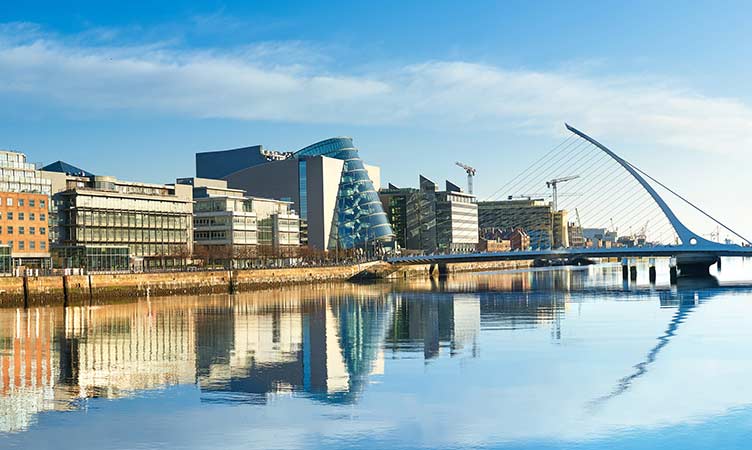Living and working in Dublin
We understand that relocating for a new job is a big decision. If you’re thinking about relocating to Dublin to work with RCSI, there are a number of services provided to ensure the relocation process is as smooth and stress-free as possible.
The following is useful information to be aware of, but more detailed, specific information and advice on all aspects of the relocation process can be provided by RCSI’s HR department.

The Irish immigration authorities apply controls to all arrivals other than Irish and British citizens. Most visitors to the Republic of Ireland require valid visas – more information about this can be found here.
The standard short-term visa for tourism, business trips or studying is the ‘short-stay’ ‘C Visa’, for either single entry or multiple entries. The maximum stay under this visa is 90 days and this allows foreign nationals to travel to Ireland for up to 90 days for job-related activities, including:
- Attending meetings
- Negotiating or signing agreements or contracts
- Working for 14 days or less
Visas must be applied for online through the Irish Naturalisation and Immigration Service Visa Portal at least eight weeks before the intended date of travel.
European Economic Area (EEA) and Swiss nationals are not required to hold work permits to live and work in the Republic of Ireland. Work permits are issued by the Employment Permits section of the Department of Business, Enterprise and Innovation (DBIE).
To open a bank account in Ireland, applicants are legally obliged to provide:
- Proof of identity (valid passport, driving licence, national identity card), and
- Proof of address (utility bill, correspondence with a financial institution).
The standard lease arrangement is for 12 months. Deposits normally amount to the equivalent of one month’s rent and is held by the landlord for the period of tenancy. It will be refunded by the landlord, subject to any deductions for damages. Costs of utilities are not usually included in the rent and the tenant is responsible for payment of utilities consumed.
Newly arrived expatriates may have the option of living in an apartment or hotel while trying to source long-term accommodation.
Ireland’s temperate climate means very few extreme weather conditions. A typical winter’s day is usually around 8°C, while the average summertime temperature is around 18°C.
Dublin city centre is compact, making it easy to get just about anywhere you want to go on foot. The RCSI main campus is right in the heart of the city, just off one of the most famous parks in Europe, St Stephen’s Green, and is perfectly placed to offer the best possible access to the array of public transport options.
The unit of currency is the euro (EUR), divided in to 100 cents. The following denominations are in circulation:
- Notes: 5, 10, 20, 50, 100, 200, 500
- Coins: 1, 2, 5, 10, 20 and 50 cents, 1 and 2 EUR
Dublin has a multitude of eateries serving a variety of cuisines. Whether you’re looking for a quick bite or a hearty meal, many of the city’s best restaurants are within minutes from the RCSI city centre campus.
Dublin is a city full of culture and creativity. The city has nurtured some of the world’s most iconic musicians, artists and writers and also regularly attracts international talent for spell-binding performances.
Galleries and museums and live music venues are all a stone's throw away from RCSI. Art is everywhere in Dublin and while there are a wealth of galleries in the city centre, artwork is also proudly exhibited in cafés and new murals pop up around the city all the time.
For those interested in taking a break from the city, Dublin's dramatic coastline and rolling hills allow for a wealth of adventurous activities, from water sports to hillwalking and mountain biking.
